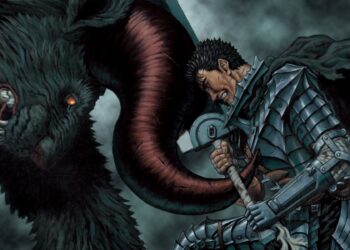Delphini Riddle: Unpacking the Enigma of Voldemort’s Daughter
You dive deep into the wizarding world and ask a curious question: “Who is Voldemort’s daughter 6?” Hold on, Potterheads. We will unravel the mystery of Delphini Riddle, a character reshaping established lore.
Prepare to challenge your notion of the Dark Lord’s legacy. Yes, Voldemort, who is loveless and feared, actually has a daughter. Surprised? You are not alone. Let’s explore this controversial yet captivating addition to the Harry Potter story.
The Reveal: Delphini’s Existence in Canon
Let’s confront the magical elephant: Is Delphini canon? The answer is yes. The big reveal occurs in the stage play,
This play occurs nineteen years post-
Parentage: The Unholy Union of Voldemort and Bellatrix
Speaking of Bellatrix, let’s discuss the parents. Delphini is the offspring of Lord Voldemort and Bellatrix Lestrange. This parentage creates a complex character. Imagine the dark magic genetics swirling within her! You have the most feared Dark wizard and his deranged lieutenant as parents.
Bellatrix’s devotion to Voldemort was legendary, even obsessive. Some fans interpreted this as romantic, even if neither books nor films portrayed it as such. Voldemort, famously incapable of love, likely saw Bellatrix solely as a weapon. However, the play introduces this unexpected biological link between them. It suggests a level of something meaningful, though not love in any traditional sense.
Born in Secrecy: Delphini’s Birth at Malfoy Manor
Delphini’s arrival was secretive, fitting for the Dark Lord’s progeny. She was born at Malfoy Manor in 1998, shortly before the Battle of Hogwarts. Think about the timeline. The wizarding world is teetering on war, Voldemort is consolidating power, and amidst all this, Bellatrix is pregnant and hidden.
The play
Delphi was born in March 1998. Amid brewing battles, a new life came into being at Malfoy Manor, connected to dark forces. The secrecy of her birth underscores the hidden relationship between Voldemort and Bellatrix. Her existence represents significance for Voldemort, even if his motivations lack traditional paternalism.
Delphini’s Name: A Whisper of Mystery
Let’s discuss her name: Delphini. It’s elegant, unlike “Voldemort,” which sounds terrible. “Delphini” evokes mystique, hinting at prophecy like the Oracle of Delphi in Greek mythology. It’s a name that whispers secrets and hidden depths, suiting the daughter of the Dark Lord.
She is also known as Delphi. Delphi is shorter, snappier, but still enigmatic. This name masks her identity when she operates under a false persona. The choice of “Delphini,” and use of “Delphi,” seem deliberate, adding to her deception and mystery. It’s strikingly different from her father’s fearsome name, suggesting a varied approach to power.
Delphini’s Role in “The Cursed Child”: Time-Turning and Daddy Issues
What does Delphini do in
In the play, Delphini manipulates Albus Severus Potter, Harry and Ginny’s second son, and his friend Scorpius Malfoy (Draco’s son, naturally). She tricks them into stealing a Time Turner, permitting time travel. Her plan is to go back and alter history to prevent Voldemort’s downfall.
This classic villainous plot springs from a warped sense of loyalty to family. She believes it is her destiny as Voldemort’s heir. Delphini carries the burden of Voldemort’s legacy. She is determined to restore him to power at any cost. This makes her a formidable antagonist, though her existence sparks division among fans.
Defeating Delphi: A Family Affair, Almost
Does Delphini succeed in bringing Voldemort back? Thankfully no. She is ultimately defeated after a serious fight. Who takes her down? Not just Harry Potter this time. It requires teamwork from Harry, Hermione Granger (now Minister for Magic), Ron Weasley, Draco Malfoy, and Ginny Weasley to subdue her. Teamwork is key, even when the task is defeating Voldemort’s daughter.
It speaks volumes about Delphini’s magical prowess that such a powerful group is needed to defeat her. She is no pushover. In fact, she quickly defeats Harry Potter, who serves as Head of the Department of Magical Law Enforcement. This highlights her exceptional martial magic skills and inherent dark powers. Delphini is indeed a force to reckon with, a true heir to Voldemort’s legacy.
After her defeat, Delphini has a poignant moment. She asks Harry to erase her memories of the events. She admits that knowledge of her parentage is too painful for her. This adds tragedy to her character. Despite her villainous actions, she is a product of a dark upbringing, yearning for connections to parents she never knew positively.
Delphini’s Upbringing: Raised by a Less-Than-Loving Caretaker
Delphini’s childhood was bleak, as expected for Voldemort’s daughter. After her parents’ demise (Voldemort falls again, and Bellatrix is taken down by Molly Weasley), Delphini was placed under the care of Euphemia Rowle. “Entrusted” is a generous term since Euphemia was far from a loving guardian.
Euphemia Rowle was not pleased to raise Voldemort’s child. Rumor says she only did it for gold. We don’t know who paid her off. Perhaps loyal Death Eaters aimed to secure Voldemort’s legacy, or maybe Lucius Malfoy was involved. Regardless, Euphemia’s motives were mercenary, not maternal. She sought wealth, not affection.
nurturing.
Euphemia Rowle was a “mean old witch.” Charming, right? Delphini’s childhood was far from perfect. Raised by someone who didn’t care, Delphini grew in an emotionally barren world. This shaped her manipulative nature and her longing to connect with her parents, even if it involved manipulating time.
Homeschooled and Isolated: Delphini’s Lack of Hogwarts Education
Delphini never attended Hogwarts School of Witchcraft and Wizardry. Imagine that! No Sorting Ceremony, no Quidditch, no feasts. Euphemia decided to homeschool her. This was not for her education, but to keep her isolated. Delphini lacked friends and social interactions, facing a grim education.
This isolation fueled Delphini’s manipulative side. She learned to deceive to get what she wanted. It is a case of nature versus nurture. She inherited traits from Voldemort and Bellatrix but lacked guidance, creating a troubled character.
False Identity: Delphi Diggory and the Niece Deception
In
“Delphi Diggory” is a carefully crafted persona meant to gain trust. She manipulated their guilt and desire for heroism to achieve her real goal: resurrecting Voldemort. This name hides her true identity and intentions, showing her cunning nature.
Her deception extended beyond the boys, fooling many others. It allowed Delphini to work in shadows without exposing her alarming parentage. This false identity is central to her manipulation.
For more on Delphi Diggory, visit the official Harry Potter Encyclopedia entry.
Why Diggory? The Logic Behind the Lie
Why use “Diggory”? Why not “Longbottom” or “Weasley”? The choice is brilliant yet morally void. Identifying as Voldemort’s daughter would scare everyone away. “Hello, I’m Voldemort’s kid; help me?” Not a good approach.
The Diggory name holds emotional weight for Albus and Harry Potter. Cedric’s tragic death haunts Harry. Associating with Cedric allowed Delphini to manipulate Albus’s empathy. It was a calculated move to exploit vulnerabilities.
Claiming connection to the Diggorys gave Delphini a veneer of trust. Their grief also allowed her to blend in without immediate suspicion. This choice highlights her intelligence and willingness to exploit tragedy for her benefit.
Not a Horcrux, But… Functionally Similar?
Let’s examine Delphini’s nature. Is she a Horcrux? No. Voldemort’s Horcruxes anchored pieces of his soul. Delphini does not contain any part of his soul. But she operates like one. While she lives, Voldemort’s legacy endures through her.
Delphini embodies his ambition and dark ideologies. She ensures a form of Voldemort’s immortality through her existence. This begs the question: Did Voldemort view her as a living Horcrux? It’s a grim thought.
Her existence continues Voldemort’s influence, making her a dangerous figure. Whether intended or not, she perpetuates his legacy.
Voldemort’s Motivation: An Heir to Slytherin’s Throne?
This leads us to why Voldemort wanted a child. His dislike for connection makes fatherhood strange for him. Was it sentimentality? Unlikely. Voldemort’s sentimental ideas are rare.
Most likely, he wanted an heir to continue his dark legacy. He sought someone to surpass him in power. Bellatrix was the perfect choice for this role, combining magic and commitment.
Having Delphini allowed Voldemort’s influence to persist beyond his defeat. It was a long-term strategy for power expansion, ensuring his reach lasted even in death.
Bellatrix’s Devotion: Obsession or True Love? (For Voldemort, Anyway)
Now, let’s discuss Bellatrix and Voldemort. Her devotion was strong, bordering on obsession. “Devoted” is too weak a term; “Obsessed” fits better. She worshipped him with unyielding loyalty. But was it love?
Some fans say her feelings were romantic obsession. Her actions and loyalty suggest a deep attachment based on dark ideals and fear.
Voldemort once remarked about love through desire. This shows his lack of understanding emotional depth. He may have seen Bellatrix’s loyalty through this limited lens, valuing her abilities more than any affection.
Voldemort’s Perspective: Utilitarian or Something More? (Probably Not)
Now let’s try to understand Voldemort’s view of Bellatrix. Did he regard her as more than a useful tool or loyal follower? Unfortunately, it’s unlikely he felt any romance toward her. His inability to connect emotionally was well-documented.
Voldemort used Bellatrix as a tool for his ambitions. Her magical abilities, loyalty, and readiness for unspeakable acts made her essential in his quest for power.
He may not have had love for her, but he likely valued her loyalty. Perhaps he felt a twisted form of gratitude. But to think he had emotional depth for her is a stretch. Their bond was likely transactional, relying on their mutual needs for dark magic and power.
Marital Status: Unmarried and Unbound
Voldemort and Bellatrix were not married. He was never married to anyone. His true marriage was to ambition and immortality. Bellatrix was already wed to Rodolphus Lestrange, another loyal Death Eater. Their relationships created much complexity.
Bellatrix’s marriage did not hinder her affair with Voldemort. In the Death Eater world, loyalty outweighed moral norms. Her commitment to Voldemort shattered her earthly ties, including her marriage. It highlights the intensity of her obsession and the unique dynamics in Voldemort’s circle.
No wedding bells rang for Voldemort and Bellatrix. Their affair transcended conventional marriage norms, rising from shared ideologies and Bellatrix’s fierce loyalty, resulting in their daughter, Delphini.
Nature of Their Relationship: Devotion and… Procreation?
Their relationship was not typical of romance. It consisted of loyalty, dark ideologies, and surprising procreation. Bellatrix was entirely devoted to Voldemort, acting only to serve him. In return, he valued her loyalty and magical strength.
Their rendezvous that produced Delphini seems tied to Bellatrix’s wish to give Voldemort an heir and Voldemort’s wish to keep his legacy alive. There was no love or mutual affection; it was a dark partnership borne from ambition and obsession. From this union, Delphini emerged.
Reason for Voldemort Having a Child with Bellatrix: An Heir Apparent
Why would Voldemort, legendary for his lovelessness, father a child with Bellatrix? One word: heir. Despite his obsession with immortality, he understood mortality’s possibility. An heir, especially one with her dark lineage, strategically extended his ideology beyond his potential fall.
Bellatrix, driven by loyalty, likely desired to bear Voldemort’s child. For her, it was the ultimate loyalty act. It solidified her position in Voldemort’s hierarchy while feeding his ambitions. For Voldemort, it was a straightforward decision for legacy assurance. No sentiment involved; just raw ambition.
Thus, Delphini’s existence fits within Voldemort’s character and aims. She was no product of love but a dark heir carrying on the Voldemort legacy and terror.
For details on Bellatrix Lestrange, you can check her Wikipedia page.
Bellatrix Lestrange: Death Eater Extraordinaire
Let’s examine Bellatrix Lestrange, mother of Delphini and half of this odd parenthood. Bellatrix was one of Voldemort’s most devoted Death Eaters. “Devoted” barely describes it; she was fanatical in loyalty, completely unwavering in service to the Dark Lord.
From her Hogwarts years onward, Bellatrix adopted dark arts and pure-blood supremacy that Voldemort taught. After finishing Hogwarts, she joined the Death Eaters, rising rapidly to become part of Voldemort’s inner circle. Her cruelty, magical skill, and loyalty made her vital to Voldemort’s mission.
She was more than merely a Death Eater; she was exceptional. Bellatrix relished in torture and performed Voldemort’s commands with chilling efficiency and delight. In the wizarding realm, her name struck fear as she cultivated a dreadful reputation merging with Voldemort’s dark agenda.
Bellatrix’s Demise: Molly Weasley’s Maternal Fury
Despite her talent and loyalty, Bellatrix’s reign ended during the Battle of Hogwarts. Unexpectedly, Molly Weasley defeated her. Yes, Molly Weasley, the quintessential maternal figure, brought about Bellatrix’s downfall.
While defending Ginny, Molly engaged Bellatrix in combat. With a swift non-verbal spell, she struck Bellatrix over the heart. The fearsome Death Eater fell dead instantly, gasping a final breath. “Not my daughter, you witch!” is the sentiment echoing behind Molly’s powerful move.
Molly’s victory over Bellatrix represented poetic justice. It symbolized love’s triumph over hate and darkness. The scene highlighted maternal love’s strength, proving that fierce mothers can overpower even dark witches. Bellatrix’s death at Molly Weasley’s hands served as a satisfying end to her twisted story.
Azkaban Breakout: Bellatrix’s Temporary Freedom
Before her end, Bellatrix had time in Azkaban, the soul-sucking Dementor-guarded prison. Alongside fellow Death Eaters, she was imprisoned for her crimes after Voldemort’s initial downfall. However, her imprisonment did not last long.
In a critical moment in the
The Dementors switched allegiances, abandoning the Ministry of Magic to support Voldemort. This turning point allowed Bellatrix and other Death Eaters to rejoin him, escalating their tyranny. Bellatrix’s Azkaban escape marked a critical shift in the Second Wizarding War.
Voldemort’s Family History: Muggle Father, Witch Mother
Understanding Voldemort gives insight into Delphini’s lineage and roots from Voldemort’s family history. Tom Riddle was born to witch Merope Gaunt and Muggle Tom Riddle Sr. This mixed heritage affected Voldemort’s identity deeply.
Tom Riddle Sr., handsome and unaware of magic, fell under Merope’s influence when she used a love potion to ensnare him. Their tragic union led to Tom Riddle Jr., who later spurned his Muggle heritage for Lord Voldemort identity.
Merope Gaunt belonged to an ancient pure-blood family steeped in darkness and skilled in Dark Arts and Parseltongue. Merope endured hardship in life and…
and abuse led her to seek love and escape her sad life with Tom Riddle Sr. Her tragic death after giving birth to Tom Riddle Jr. shaped Voldemort’s dark view and his rejection of love and kindness.
The Gaunt Family: Pure-Blood Descent into Darkness
The Gaunt family, Voldemort’s ancestors, show a disturbing trend in pure-blood obsession. They were descendants of Salazar Slytherin, one founder of Hogwarts. They claimed pride in their heritage as their fortune and sanity declined. Many spoke Parseltongue, inherited from Slytherin, and practiced the Dark Arts.
Key members are Marvolo Gaunt, the abusive patriarch, and his children Morfin and Merope. Morfin shared his father’s violent tendencies and focused on blood purity. Merope faced neglect from her family. This treatment led her to desperate actions with Tom Riddle Sr. The Gaunts reflect the dangers of blood purity and inbreeding, a warning within wizarding society.
Voldemort’s Patricide: Murdering His Muggle Lineage
Tom Riddle learned about his Muggle father when he was sixteen at Hogwarts from his uncle Morfin Gaunt. This revelation sparked rage and a rejection of his heritage. He murdered Tom Riddle Sr., and both his paternal grandparents in a calculated act of patricide.
He wielded the Killing Curse, Avada Kedavra, to erase his Muggle lineage. This murder represented a break from his past, embracing his identity as Lord Voldemort, the Dark Lord who favored pure-bloods. This act warned of the chilling cruelty he would unleash during his reign.
Other Characters Mentioned: A Quick Glance
A few characters are linked to Delphini or Voldemort’s story. We give them a brief mention:
- Draco Malfoy: A peer of Harry











